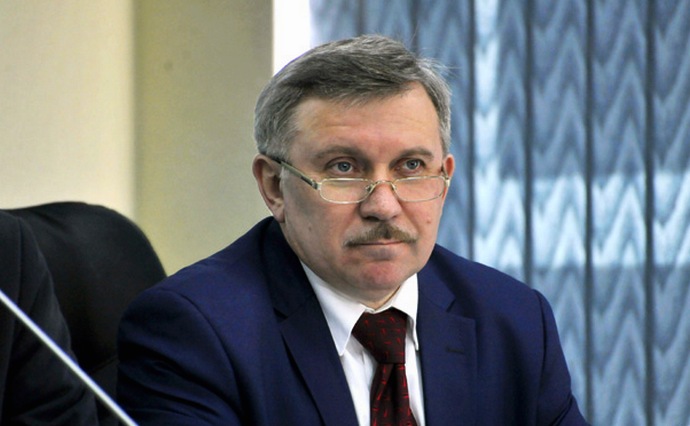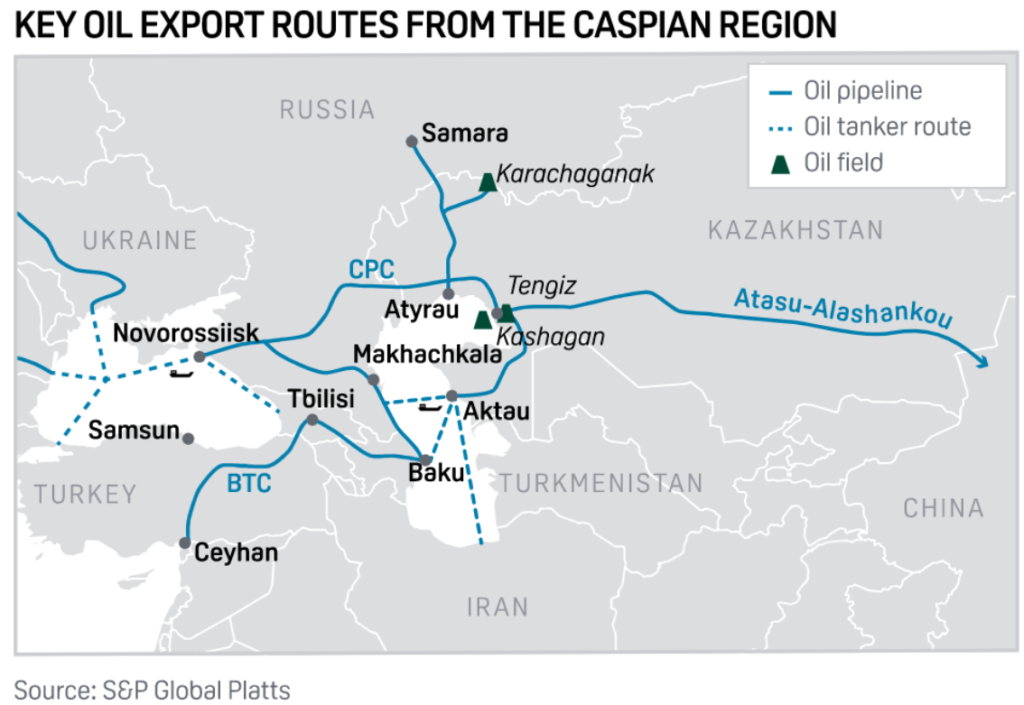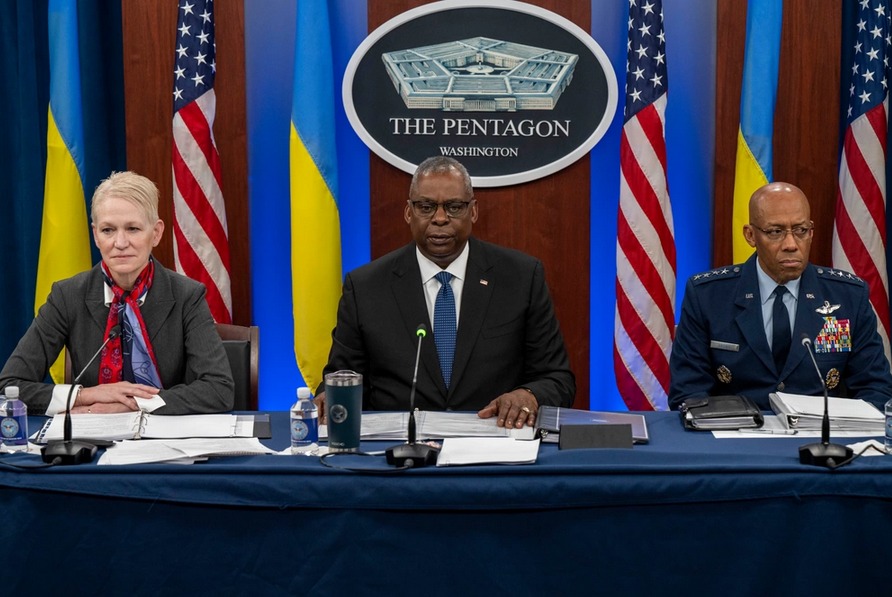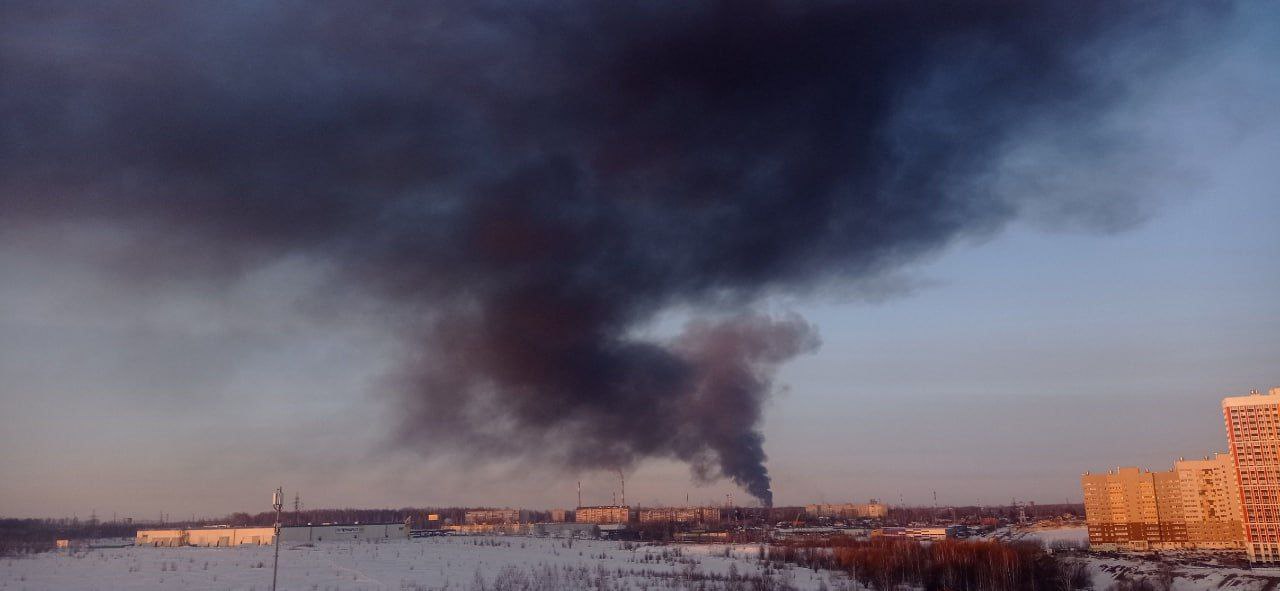On 11 April, Russia launched a massive strike against Ukraine's energy infrastructure, completely destroying one of the country's largest thermal power plants, the Trypilska TPP, and hitting two gas storage facilities.
Amidst this, US Defense Secretary Lloyd Austin, echoing statements from White House and State Department officials, criticized Ukrainian attacks on Russian oil refineries, citing potential global energy repercussions.
"Those attacks could have a knock-on effect in terms of the global energy situation," Austin told the Senate Armed Services Committee. "Ukraine is better served in going after tactical and operational targets that can directly influence the current fight."
Let's set aside the fact that the US has still not given or sold Ukraine anything with which it can strike "tactical and operational targets" in Russia, even though Kyiv has been requesting long-range American ATACMS missiles for more than a year.
Let's also not touch on the fact that Russia's share of global gasoline and diesel exports is relatively small, at 1% and 3% respectively. In other words, even if Russian exports disappeared overnight, there would be no disaster.
Instead, let's focus on the real issue at hand: what is driving Austin's position? Ukrainian energy expert Mykhailo Honchar has analyzed the situation and identified several factors that may be influencing Austin's stance. Euromaidan Press has summarized Honchar's main arguments and reached out to him for clarification to provide readers with a comprehensive perspective on the issue.

Mykhailo Honchar, a highly respected Ukrainian expert in international energy and security relations, has served as an analyst at the National Security and Defense Council of Ukraine, worked within Ukraine's oil and gas sector, and contributed to leading research institutions.
The shifting sands of US consensus
The US has long been divided on the issue of Ukrainian strikes against Russian refineries. While the State Department was split, the Pentagon and prominent American generals considered the attacks to be legitimate from a military perspective. However, Secretary of Defense Lloyd Austin now suggests that the impact of these strikes on global energy markets should be taken into account.
According to Mykhailo Honchar, the real issue at hand is the increase in American gasoline prices. However, he argues that the problem does not lie in Ukraine's strikes on Russian refineries but rather in US policy in the Middle East. For several months, the US-led coalition has struggled to deal with the Houthis in Yemen, whose attacks on oil tankers in the Red Sea have forced them to use longer and more expensive routes.
"Crude oil and fuel markets are different. Oil is not poured into tanks; only its refined products - diesel, gasoline, and jet fuel - are. Therefore, Austin's assertion is absurd. He is shifting the blame to Ukraine due to the Pentagon's inability to put an end to the Houthis," Honchar told Euromaidan Press.
Honchar suggests that Lloyd Austin's change in stance may be the result of pressure from external influences. He believes that Russia exerts its influence on the US through American oil giants ExxonMobil and Chevron. In 2022, these companies reported revenues of $235 billion and $413 billion, respectively, far surpassing Ukraine's GDP of $160 billion. These corporations maintain powerful lobbies within US administrations, regardless of who occupies the White House.
"And they are also known for participating in large-scale oil production projects in Kazakhstan since the 1990s, especially Chevron," says Honchar.
Kazakhstan's oil is transported to global markets via the Caspian Pipeline Consortium (CPC) pipeline, which runs primarily through Russia and is operated by the Russian monopoly Transneft.

This arrangement allows Russia to control the flow of oil from American companies in Kazakhstan, potentially using it as leverage to influence US policy.
"Russia strictly controls the oil flow of American companies from Kazakhstan. The message is clear: if you want to keep your profits, American oil guys, then act in a way that benefits both the United States and Russia. Otherwise, we (Russia) will turn off the oil tap," Honchar explains.
Chevron's Tengiz oil and gas field in Kazakhstan, developed through the Tengizchevroil joint venture, is a significant source of revenue for the company. Chevron continues to expand production and has invested over $40 billion in a new phase of field development.
Previously, industry analysts warned that the CPC pipeline route and the Tengizchevroil joint venture were vulnerable to potential Russian retaliation against Western sanctions imposed in response to the invasion of Ukraine. However, Chevron is not concerned about it.
“It is easier for Chevron to resolve the issue through their lobbyists in Washington than to diversify export routes for Kazakh oil, bypassing Russia," Honchar explains.
Russia also has various platforms for cooperation with the US, such as the Fort Ross Dialogue project, sponsored by Chevron, Sovcomflot, and Transneft. Although holding Fort-Ross Dialogue forums during the war in Ukraine would be inconceivable, US-Russia dialogue persists behind the scenes, Honchar believes.
"The US warning to Ukraine is exactly that: a “dialogue” between Russia and the US focusing on safeguarding the profits and dividends of American companies, particularly in the lead-up to elections," Honchar notes.
Furthermore, Lloyd Austin's assistant secretary of defense for international security, Celeste Wallander, was appointed just a week after the Biden-Putin summit in Geneva in 2021. Previously, Wallander served as President and CEO of the US-Russia Foundation from 2017.

Though not known for pro-Russian views, she hasn't taken a strong stance against Russia in her influential roles.
"On 10 April, Wallander made headlines for her controversial statement at a House Armed Services Committee hearing regarding the civilian nature of Russia's oil and gas infrastructure. She came to her boss's rescue, likely earning applause from the Kremlin," Honchar remarks.
In a conversation with Euromaidan Press, Honchar clarified that refineries produce dual-use products, which are used by both civilian transport and military equipment. As a result, Russian refineries are considered legitimate military targets for Ukraine.
A pipeline of influence
The Kremlin's influence on the White House through the Caspian Pipeline Consortium (CPC) is a complex mechanism that involves several steps. Transneft, a Russian state-owned company headed by Nikolai Tokarev, a former KGB colleague of Putin, has paid dividends to CPC shareholders, including Chevron and ExxonMobil subsidiaries. In 2023, CPC shareholders received a total of $1.34 billion in dividends, with Chevron Caspian Pipeline Consortium Company receiving 15% and Mobil Caspian Pipeline Company receiving 7.5%.
The Kremlin's influence mechanism can be broken down into the following steps:
- The Kremlin, via Transneft, "amicably" requests Chevron to "work in Washington."
- Chevron mobilizes its lobbyists, formulating and assigning tasks along with a cover operation to remain behind the scenes.
- The lobbyists approach government agencies with specific instructions and a draft of the "appropriate messages" to be conveyed to Ukraine.
- Government agency spokespersons then deliver these "appropriate messages."
"The Biden team, needing to build an election fund, has increased interest in additional donations. For the Kremlin, this is an effective way to elegantly corrupt a geopolitical adversary, turning the US into a passive accomplice through the red lines it sets for Ukraine," Honchar summarizes, questioning whether there will be an anti-corruption investigation into the matter.
When Euromaidan Press asked Honchar if he had evidence to support his claims, he stated that even if he possessed testimonies or documents, they would be entirely confidential, and he would not be able to disclose them.
However, he assured, "Due to my previous professional experience in the oil sector, I am well-versed in how these specific companies operate."
Following the statements made by Austin and Wallander, the US now has a consolidated position across key agencies, including the State Department, the Pentagon, and the White House. Although the CIA has not officially expressed its stance, it is believed that they were the first to "push the wave" on the banks of the Potomac.
Consequently, Washington's red lines for Kyiv have been transformed into a green light for the Kremlin, while the Biden administration has not established any red lines for Moscow.
Read more:
- US defense secretary warns Ukraine over strikes on Russian oil refineries
- Stoltenberg: Kyiv justified in striking military targets outside Ukraine
- Ukrainian drone strikes cripple over 10% of Russia's oil refining capacity, NATO official says
- Reuters: US sanctions force Lukoil refinery to cut production by 40%
- Russia's Kuibyshev oil refinery lost half of its capacity after the last drone attack - Reuters
- Another oil refinery targeted in Russia's Tatarstan by drones

